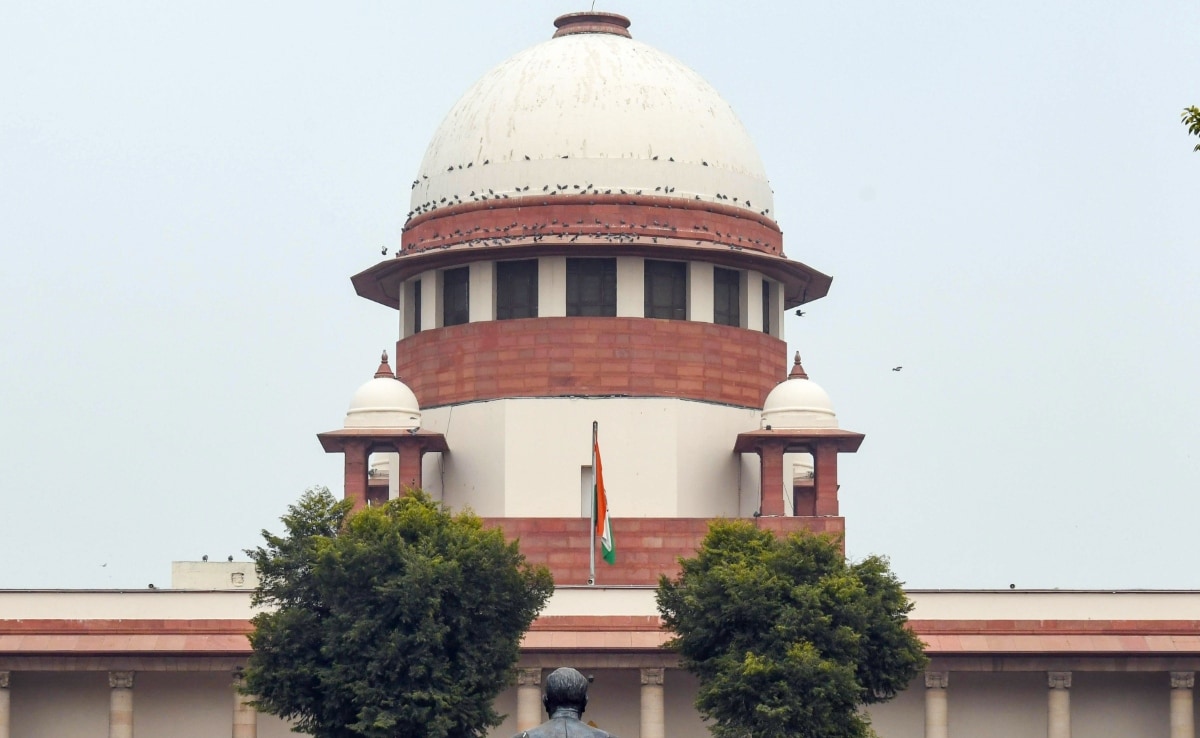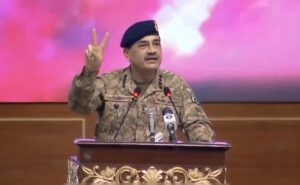
New Delhi:
The Supreme Court will continue to hear a batch of petitions challenging the constitutional validity of the Waqf (Amendment) Act, 2025 on Thursday.
Top courts will hear the case at 2 pm
A bench, including Chief Justice Sanjeev Khanna and Justice Sanjay Kumar and KV Vishwanathan, were ready to issue a notice on petitions on Wednesday and pass a small order.
However, the Center and some states sought time to keep their submission before any interim order was passed.
During the hearing, the court indicated three concerns-the validity of the WAQF by the first declared user properties by the court decrees that may now be zero, near the majority members in the WAQF Council near non-Muslims, and the controversial WAQF property pending by the collector on the WAQF property will not be considered as a WAQF property.
After the conclusion of the hearing, CJI Sanjeev Khanna expressed concern over the violence against the amendment of the WAQF Act in West Bengal.
The CJI said, “One thing is a very disturbing violence that is happening. If the matter is pending here, it should not happen.”
The Supreme Court proposed to order that the properties declared as Waqf would not be de-notified, including “by Waqf”, but the Center opposed the suggestion and demanded a hearing before such instructions.
The apex court also asked the Center whether Muslims would be allowed to be part of Hindu religious trusts.
The bench said, “The assets declared by the courts as Waqf should not be de-notified as Waqf, whether they are by Waqf-by-User or Waqf by deed, while the court is hearing the challenge to the Waqf Amendment Act 2025.”
The apex court also said, “All members of the Waqf Boards and the Central Waqf Council should be Muslims, except the former officer members.”
The bench first considered the High Court referring to the arguments, but later listened to a battery of senior advocates including Kapil Sibal, Abhishek Manu Singhvi, Rajiv Dhawan and Solicitor General Tushar Mehta, who represented the Center.
CJI further proposed to pass an order to say that the former officer members could be appointed regardless of their trust, but others were to be Muslims.
The court questioned Mehta as to how the “Waqf” could be rejected by the user because many would not have the required documents to register such a Waqf.
The “Waqf by user” refers to an exercise where a property is recognized as a religious or charitable settlement (Waqf), based on its long -term, uninterrupted use for such purposes, even if there is no formal, written announcement of the Waqf by the owner.
“How do you register such a Waqf by the user? What documents will they have? It will lead to undo something. Yes, there is some misuse. But I am real. I am also going through the decisions of the Privy Council. Waqf will be recognized by the user. If you undo it it will be a problem.
Mehta presented that a joint parliamentary committee used to sit 38 and examined 98.2 lakh memorandum before both houses of Parliament.
At the beginning of the hearing, the CJI said, “There are two aspects that we want to ask to address the two sides. First, should we entertain it or should it re -assume it in the High Court? Secondly, what are you really insisting and arguing?
Sibal, mentioned the Waqf Amendment Act to appear for the petitioners and said that it was challenging the provision that only Muslims could make Waqf.
“How can the state decide how I am, and how I am a Muslim and therefore, are eligible to make Waqf?” Sibal asked.
He said, “How can the government only tell those who have been practicing Islam for the last five years, can they make Waqf?”
Senior advocate Abhishek Manu Singhvi, who represented some petitioners, said that the Waqf Act would have all India influences and the pleas should be sent to the High Court.
Opposing the Waqf Act, senior advocate Huzefa Ahmadi said that Waqf was an established practice of Islam by the user and could not be overcome.
The Center recently informed the Waqf (Amendment) Act, 2025, which received the consent of President Drupadi Murmu on 5 April after being passed by Parliament after a warm debate in both houses.
The bill was passed with voting in favor of 128 members in the Rajya Sabha and opposing 95. It was approved by the Lok Sabha with 288 members and against it with 232 members.
AIMIM leader Asaduddin Owaisi, All India Muslim Personal Law Board (AIMPLB), Jamiat Ulama-e-Hind, Dravida Munnetra Kazgam (DMK), Congress MP Imran Pratapgarh and Mohammad Jabde, among which are challenged, including Validity.
The Center filed a warning in the Supreme Court on 8 April and sought a hearing before passing any order in the case.
A warning is filed by a party in the High Courts and the apex court to ensure that no order is passed without hearing.
(Except for the headline, the story has not been edited by NDTV employees and is published by a syndicated feed.)





